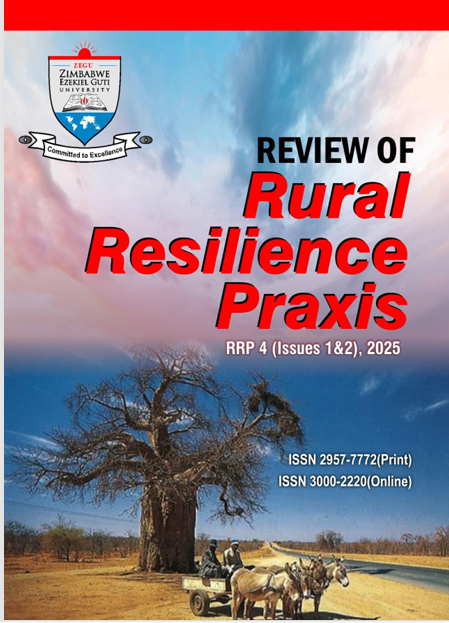Rural Responsible Tourism in Zimbabwe: Challenges, Options and Impacts
DOI:
https://doi.org/10.71458/23bjpv03Keywords:
responsible rural development, rural tourism, heritage-based development, tourist activities and attractionsAbstract
The article provides insights into rural responsible tourism (RRT), focusing mainly on challenges, options and impacts to understand the principles governing rural tourism development in Zimbabwe. The study is motivated by the continual request for heritage-based tourism activities and attractions in the rural areas. As a result, this article proposes a Rural Responsible Tourism Framework to present the implementation process. A qualitative research approach was used to collect data from purposively selected case studies, namely Nzvimbo Village in Chiweshe in the Mazowe District of Mashonaland Central Province and Kore-kore Village in Makonde District of Mashonaland West Province in Zimbabwe. Data were collected using a focus group guide developed in line with the research objectives. Findings of the study indicate that though challenges to develop RRT exist, there is great potential for the government to tap into the tourism business to create opportunities for empowering the rural people. This initiative helps to manage and reduce rural-urban migration resulting in the betterment of undeveloped and marginalised communities. The study, therefore, recommends that there be a holistic approach in the implementation process of the findings with all stakeholders, including the government, through its regulatory bodies playing a part in the implementation process




